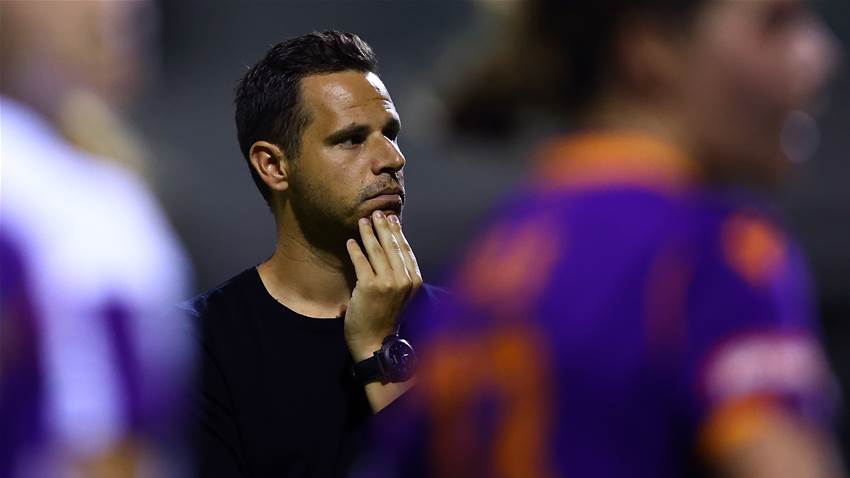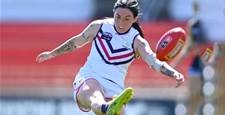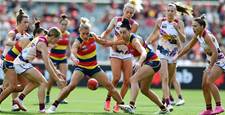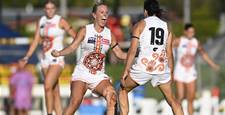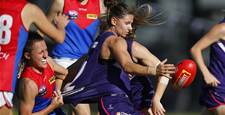In an exclusive interview Perth head coach Alex Epakis outlined what life was like off the pitch in hub, how he and his staff went the extra mile to lift the players, and how he managed personally when times were tough.
Perth Glory's head coach gave The Women’s Game an exclusive interview about the realities of his side's 10 week road trip. His detailed account highlights how he and his squad fostered a tight relationship, one that led to an inspired run of form. The Western Australian side only missed out on a Finals place due to goal difference.
Epakis Outlines the Perth success story of 2022
- Glory ended the A-League Women season within touching distance of Finals despite being almost 4,000 kms from WA for 10 weeks.
- Supporting players mentally as well as physically during the period was the key to fostering a tight squad bond.
- Players “exceeded expectations” as a result, with plans forming for a top four finish for 2022/23.
More A-League Women's news can be found on The Women's Game.
It’s been the hardest two seasons imaginable for Perth Glory. Last season, the club only received confirmation late in the day that they would be able to participate in the 2020/21 W-League due to COVID restrictions in Western Australia.
This led Perth’s then newly appointed head coach Alex Epakis just weeks to prepare for the season including having to put together a squad which consisted largely of teenagers, some of whom were as young as 15.
After a successful rapid recruitment program, which brought a combination of some of the country’s brightest young talent along with an experienced spine, there was a great deal of positivity in Western Australia about Perth’s hopes for this latest A-League Women’s season.
This recruitment campaign was carefully planned by Epakis.
“It was about identifying the type of character and person that we wanted in terms of a profile and what that looked like," told The Women's Game.
"We came up with a matrix system that ensured that whatever player we looked to sign met enough of those metrics into what we wanted on and off the field.”
Those players included the likes of Alana Jancevski, Claudia Mihocic and Sofia Sakalis as well as the experience of Mie Leth Jans and the return of club legends Lisa De Vanna and Kim Carroll.
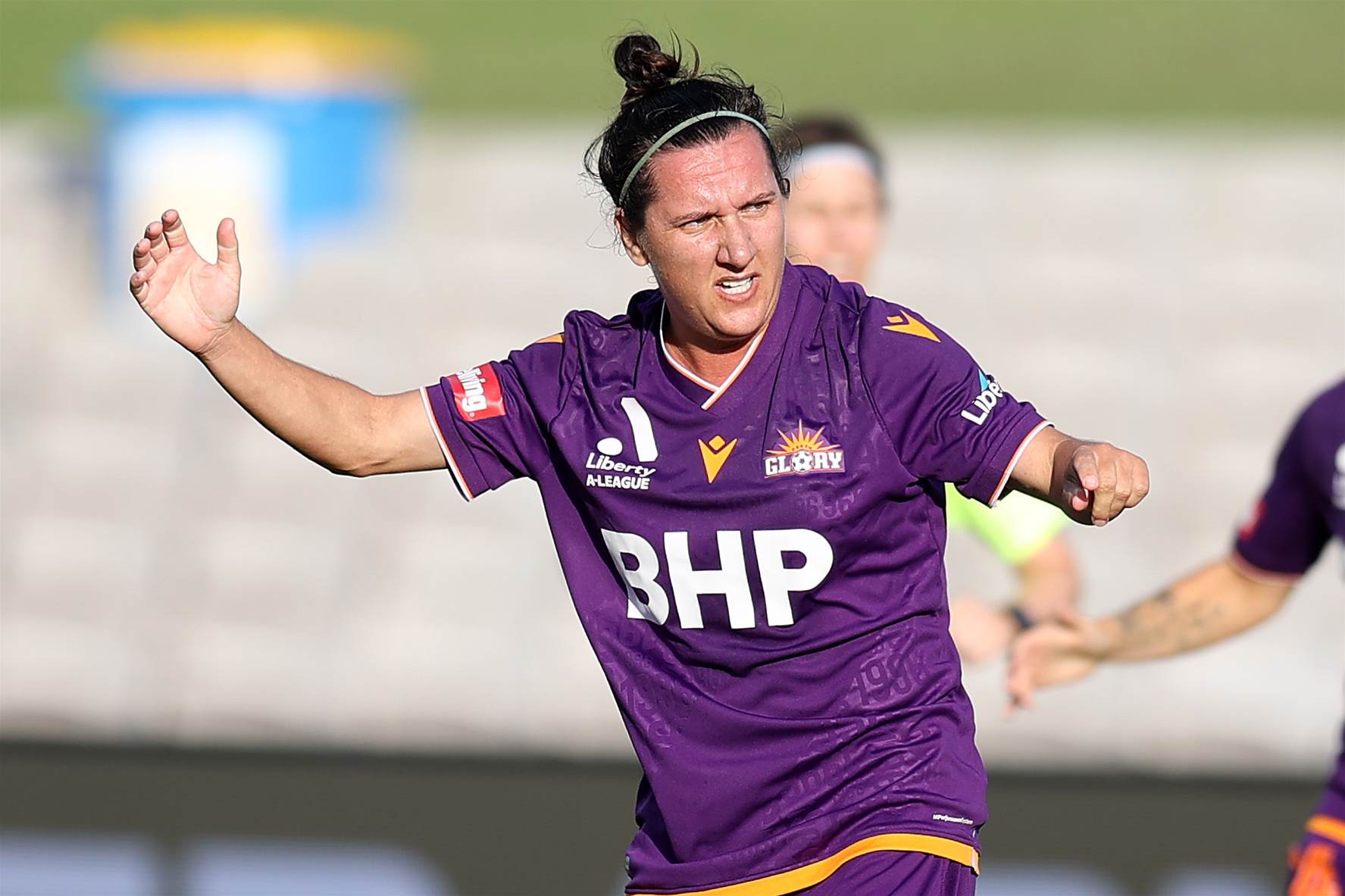
The head coach delved into how these new players performed across the campaign.
“The new players reflected the values of the existing squad members and fitted in very well into our environment and culture that was built from the season prior.
“The entire group exceeded all expectations - especially taking into consideration our circumstances and hurdles we had to manage during the course of the season.
"The performance of the players and the team was more often than not at a level that reflects our standard and level that we set ourselves. I am proud of every single player and staff member.
“We are a team that works hard, puts the team and club first, pushes each other and shares the overall good values of a being a team player.
"It is this approach and mind-set that is important to us and our team.”
That approach and mind-set turned out to be even more important when Western Australia closed its borders soon after the season began. Sadly, Perth’s opening round game proved to be the only time they would play at home all season.
The match took place incfront of a bouncing Macedonia Park crowd of 1,000 against Brisbane Roar and which saw Glory earn their first win in almost 20 months at the death. However, new COVID restrictions forced the team on the road for the rest of the 2021-22 campaign.
The month's long road trip brought another set of huge challenges both for the club as a whole, along with Epakis and his players.
This is because Perth’s squad reflects the realities of the A-League Women at the present time.
Players work full time, study full time, or are still at school. In order to continue in the competition, these players had to negotiate with their employers and educators to be able to travel into a New South Wales hub for what turned out to be almost three months, or end their seasons instantly.
In the end, Epakis was able to take a full squad into the hub. It was not an easy journey.
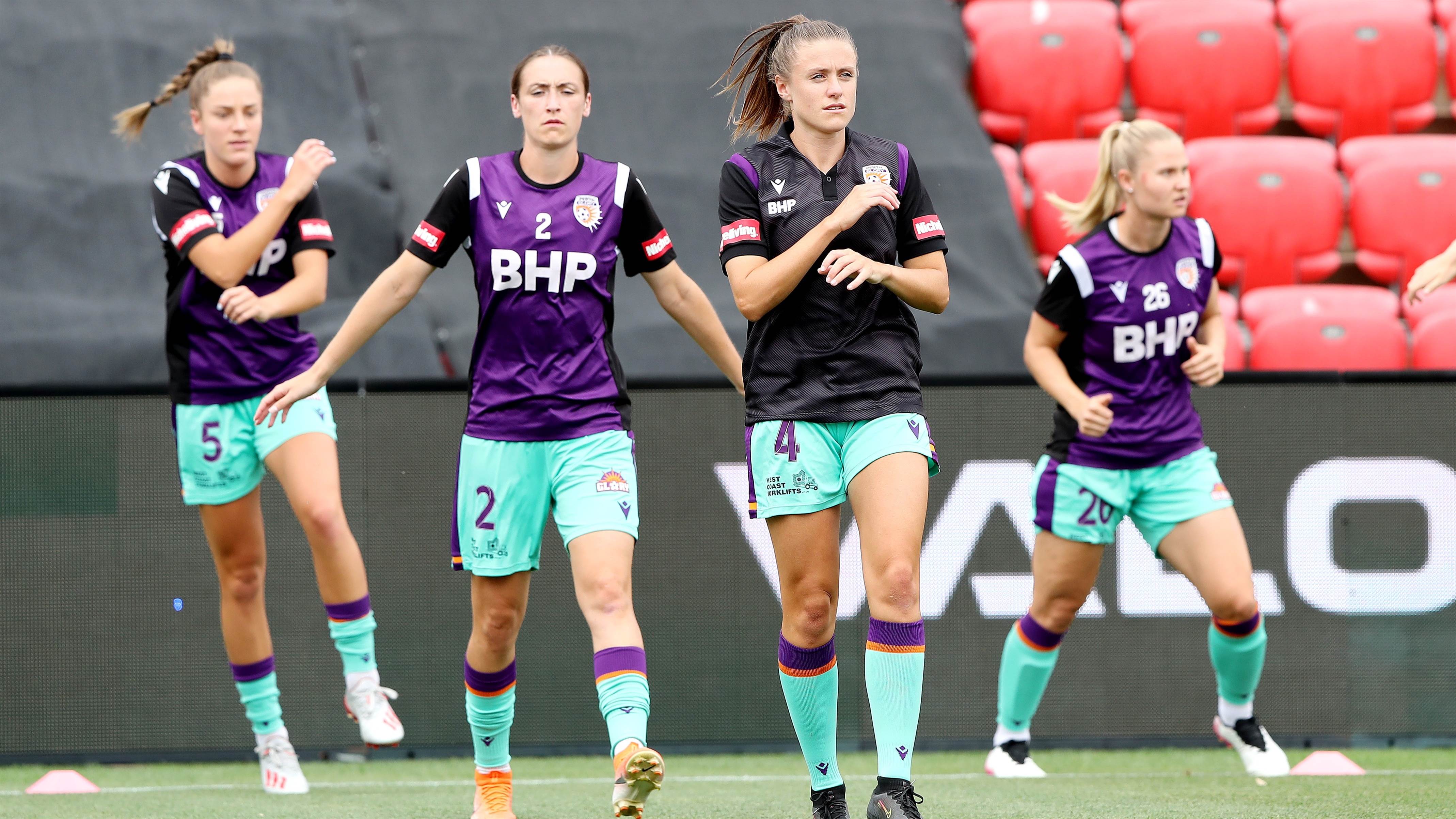
Hub life became difficult when the squad were hit by a COVID outbreak in January and later, injuries.
These significant challenges, added to those of the previous campaign, left Perth’s head coach in arguably the most difficult job in women’s football. Yet, he has revealed that he has never thought about moving away from the club.
“That was certainly never a consideration. I have never had an easy job in my life - football or non-football related.
"Easy jobs don’t suit me, I like projects, and this is certainly the type of project I want to be involved with and see through.
“The club has been fantastic in their support towards me and the team, the players are the most committed I have come across, and the staff are professional and of a top standard.
"I am exactly where I would like to be at this stage in my career.”
Life on the road in North Sydney for those 10 weeks meant that Epakis and his staff became more than just football coaches. They were actively looking after the mental well-being of a group of players thousands of kilometres from home.
“Myself, the staff, and the leadership group put in extra efforts to ensure that the entire playing group was part of a safe and supportive environment considering the circumstances.
"We had to work towards finding the right balance of ensuring players had personal time and space, whilst also using the time together as an advantage to focus on football ideas.
“Overall, we handled it all very well. The leadership group and support staff were immense in ensuring things ran smoothly and they played an important part.”
Related Articles
.jpeg&h=172&w=306&c=1&s=1)
Glory dealt big ALW blow as Sydney sign Hana Lowry

Glory sign Stephen Peters as new women's coach
.jpeg&h=172&w=306&c=1&s=1)
